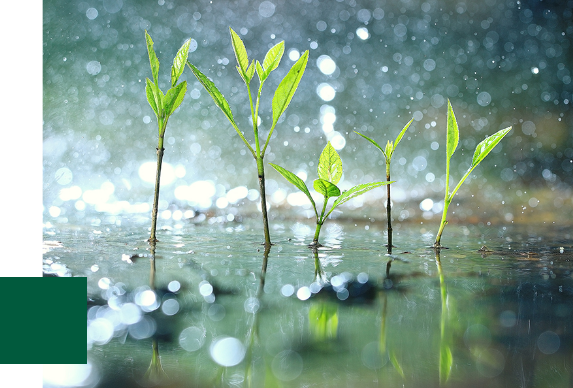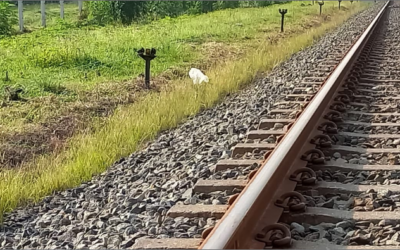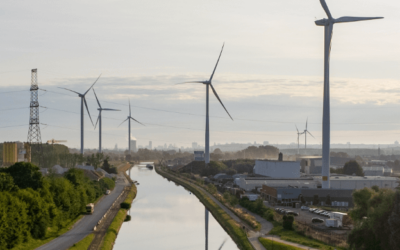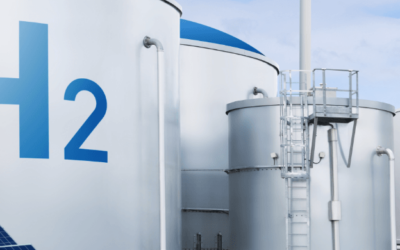LIFE programme
Contribute to the European climate and environmental goals with your project
Projects that benefit nature, environment or climate
Funding instrument for the environment (LIFE)
Are you working on projects that benefit the climate and the environment? Then you could qualify for a grant from the LIFE programme. LIFE (originally: L’Instrument Financier pour l’Environnement) is a European funding programme to stimulate innovation benefitting the environment and the climate. The programme distinguishes between two fields: Environment and Climate Action. Are you curious if your project is eligible for a LIFE grant? We are happy to help you out on this.
In short
LIFE programme overview
For whom?
The LIFE funding programme is open to enterprises, governments, cities, communities, NGOs and knowledge centres from EU Member States.
When to apply
The LIFE funding programme is a multi-year programme for the period 2021-2027. It has a total budget of 5.43 billion euros which will be distributed through various ‘calls for proposals’. The LIFE Calls for proposals 2024 have been published on 18 April 2024 and the deadlines for submission for the Standard Action Projects (SAPs) are on 19 September 2024 (other actions have similar deadlines).
How much?
For 2024 calls, the budget is of 571 million€.
For the so-called ‘traditional projects’, the Standard Action Projects (SAPs), there are no specifications for project budgets. However, proposals for small projects with total costs below 500,000 euros have rarely been selected in the evaluation. The co-financing rate is maximum 60% (with some exceptions possible).
For what?
For your LIFE application to be successful, your project must contribute to solving a natural, environmental or climate problem and it must be in line with EU goals and regulations. Eligible projects can be:
- Projects that develop, demonstrate and promote innovative techniques, methods and approaches for reaching the objectives of the relevant EU legislation and policy that contribute to the knowledge base and, where relevant, to the application of best practices.
- Projects that support the development, implementation, monitoring and enforcement of the relevant EU legislation and policy.
- Projects that catalyse the large-scale deployment of successful solutions/approaches for implementing EU legislation and policy, by replicating results, integrating related objectives into other policies and into public and private sector practices, mobilising investment and improving access to finance.
Overview of
LIFE programme themes
The LIFE funding programme is structured into two fields – Environment and Climate Action – and four sub-programmes:
Nature and Biodiversity:
- Projects that catalyse the large-scale deployment of successful solutions/approaches for implementing EU legislation and policy, by replicating results, integrating related objectives into other policies and into public and private sector practices, mobilising investment and improving access to finance.
Circular Economy and Quality of Life:
- Projects that catalyse the large-scale deployment of successful solutions/approaches for implementing EU legislation and policy, by replicating results, integrating related objectives into other policies and into public and private sector practices, mobilising investment and improving access to finance.




Climate Change Mitigation and Adaptation:
- supporting among others the EU’s climate neutrality objective by 2050, tacking topics i.e. sustainable renewable energies or GHG emission reduction and carbon removal in transport, industry, land & coast management.
Clean Energy Transition:
- building capacity, stimulating investments and supporting implementation of policies focused on energy efficiency and small-scale renewables.
Meet all requirements
LIFE criteria
Would you like to respond to a LIFE program call? Here are the main conditions you must meet:
Your project has a clear link to the nature, environment or climate problem hat contributes to the objectives and targets of the EU Green Deal.
You can quantify the impact, preferably in a table format. Need help? We are happy to perform a cost-benefit analysis or impact scan for you.
There is a potential for the project results to be replicated or up-scaled in the same or other sectors or places.
All partners involved in the project are based in the EU.
Why this grant?
The purpose of LIFE
The general objective of the LIFE funding programme is to contribute to the shift towards a sustainable, circular, energy-efficient, renewable energy-based, climate-neutral and -resilient economy, in order to protect, restore and improve the quality of the environment, including the air, water and soil, to halt and reverse biodiversity loss and to tackle the degradation of ecosystems. It does so by supporting environmental, nature conservation and climate action projects throughout the EU in accordance with the European Green Deal (‘by 2050, Europe should be the first climate-neutral continent in the world’).
“In my role as a consultant at EGEN, my work encompasses a wide range of tasks throughout the entire lifecycle of European funding applications. My main areas of interest include water, environment and renewable energies. “
Contact Carol Trisorio ﹥


What is the LIFE grant for?
Types of projects
The LIFE funding programme is open to enterprises, governments, cities, communities, NGOs and knowledge centres from EU Member States. Within LIFE, there have always been opportunities for projects developed for the circular economy, such as national or European demonstrations or pilots in the field of efficient (re)use of raw materials or recycling (e.g. waste upcycling, innovative plastic recycling, or recycling bottom ashes from waste incineration). LIFE also seeks projects that focus on a more efficient process industry, biogas production, zero and near-zero emission transport solutions, GHG emission reduction or carbon removal (e.g. the use of hydrogen in industry, or smart recharging solutions, or carbon capture and storage).
Each year different topics within the sub–programmes are prioritized. In 2024 some interesting priority topics are:
- The collection and recycling of waste from Electrical and Electronic Equipment (WEEE) batteries, plastic (packaging), bio-waste,, critical raw materials (CRM)
- The reduction of particulate matter (PM) in areas of high pollution
- Sustainable (zero-emission) transport,
- Improving water quality, e.g. via management of nutrients and organic pollutants-innovative solutions for drinking- or waste water treatment.
- Solutions for noise reduction in densely populated areas
- Decarbonization of non-road modes of transport
- Production of biogas and biomethane
- Industrial solutions for carbon removal, carbon capture and use and/or storage
For your LIFE application to be successful, your project must contribute to solving a natural, environmental or climate problem and it must be in line with EU goals and regulations. Eligible projects can be:
- best-practice projects in which proven methods get developed;
- demonstration and pilot projects in which new innovative methods and approaches need to be further tested and developed;
- communication projects that are, for instance, meant to increase awareness.
KEEP UP TO DATE
News
Want to know more about grants? Check out our latest news articles below.
EGEN supports ProRail with successful LIFE application for nature-friendly vegetation removal along railway tracks
The new call of the European LIFE programme has been opened in April. LIFE is the European Union’s funding instrument for projects focused on nature, environment, climate, and the energy transition. It offers a unique opportunity to turn innovative and sustainable...
Two new Horizon calls published for sustainable energy
The European Commission's Horizon Europe Work Programme for 2023-2024 has allocated 188.6 million EUR to support sustainable energy projects within Cluster 5. This cluster covers the areas of Climate, Energy and Mobility, and as such is a vital component of the EU’s...
Three tips for a successful EHB Auction proposal
The European Hydrogen Bank (EHB) is an initiative of the European Commission established in 2023 with the aim to support among other things the EU domestic renewable hydrogen production. At EGEN, we are dedicated to navigating the European Hydrogen Bank Auction...


